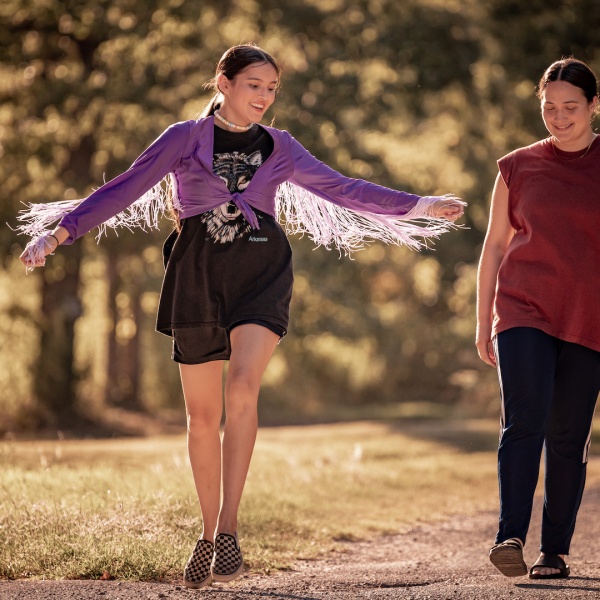Kohn’s Corner is a weekly column about the challenges and opportunities of sustaining American film culture.
When you’re living in the bubble of daily cinema life during the Cannes Film Festival, it’s hard to know if the rest of the world cares about any of the movies you’ve seen over the past two weeks. The obvious marketing hooks for “Indiana Jones and the Dial of Destiny” and “Killers of the Flower Moon” will take care of them. For everything else, who knows?
The last three Palme d’Or winner winners — “Triangle of Sadness,” “Titane,” and “Parasite” — leveraged their Cannes success into genuine cultural impact. (“Titane” flopped, as did almost everything did in the omicron-centric fall of 2021, but it still left a mark on the conversation.) The challenges in getting movies made and seen is higher than ever, but Cannes 2023 came ready for battle. Here are some of the most promising signs I found.
The French New Wave Isn’t Finished
For a generation of cinephiles, the death of Jean-Luc Godard last fall felt like a breach. He was the last living link to the French New Wave (unless you count “The 400 Blows” child star Jean-Pierre Leaud, still kicking at 78) and made his most daring, revolutionary cinematic works in his later years. When he decided to end his own life at 91 via assisted suicide, it struck many as a de facto statement on cinema itself. The French New Wave epitomized the idea that filmmaking was a flexible art form designed to stir conversation and excite artists with the potential for constant experimentation. Without that spark, does the art form go stagnant?

The legacy of the French New Wave isn’t finished yet. This year’s Cannes Classics section included a delightful peek at an unfinished Godard pitch for a feature project he was developing at the time of his death, “Phoney Wars.” A slideshow on Xerox paper proposes a work based on the late poet Charles Plisnier’s 1937 novel “Fake Passports” with a blend of film formats, filmed material, and essayistic asides. The project’s 20-minute pitch, aided by longtime Godard cinematographer and editor Fabrice Aragno, shows Godard was still in the process of creative soul-searching. It also suggests that Godard’s not done yet: There are more archives where this came from (sales company Goodfellas is working through various commercial possibilities).
The legacy of the New Wave was visible elsewhere at Cannes, including a new documentary, “Viva Varda!”, on the late Agnes Varda’s poignant career. Her daughter, the producer Rosalie Varda, also unveiled an innovative new plan to restore her mother’s work and create a digital platform for classroom use, with support from Netflix and other investors.
Hungry American Buyers
American film buyers must calculate for an uncertain market and conservative tastes. Several told me they were less interested in the market’s unfinished projects than seeing finished work: They wanted to see movies they could move on fast. That’s why everyone from Neon to Netflix waited an hour in the rain to get into the gala premiere of Todd Haynes’ “May December,” and Netflix skipped the after party to figure out how to make a competitive bid.
They pushed past the streamer’s preference for all-rights deals and spent $11 million on U.S. rights. That’s a breakthrough at Cannes, where many movies are financed by pre-selling foreign territories. If Netflix grows more comfortable with acquiring rights in piecemeal, more movies stand a greater shot of acquisition. Everyone wants to get paid, so here’s hoping they remain flexible about what it takes to pony up on Cannes favorites.

Neon made a swift deal for the charming animated New York dramedy “Robot Dreams,” a nearly wordless slapstick story of a lonely dog and his robot companion. The company’s willingness to move fast might seem risky, but one year after buying “Triangle of Sadness” it proves Neon is one of the few significant specialty buyers willing to do so. The company also snapped up Justine Triet’s innovative murder mystery “Anatomy of a Fall.” Much of the movie is in English, but I’m told the dialogue is more than 51% French; it could end up as the country’s Oscar submission.
“Top Gun” Wasn’t a Fluke: Cannes Is Good for Hollywood
Last year’s lively launch for “Top Gun: Maverick” set it on a path to gross over $1 billion worldwide. It’s unlikely that “Indiana Jones and the Dial of Destiny,” will go the same route. (The movie will please fans with its dopey send-off, but not to the extent of Tom Cruise flying a jet.) However, Disney’s decision to bring Harrison Ford to town for a career tribute, and force the media in attendance to watch that decade-spanning montage before seeing the movie, provided the best launch the movie could hope for. Disney CEO Bob Iger was clearly impressed, and it may have helped him grasp what his specialty team at Searchlight was doing at the festival as it combed the lineup for acquisitions. (He declined comment by saying “You’re asking a lot of questions” and walking away when I asked him about this at a festival party.)

Zaslav launched “Elvis” at Cannes 2022 and the festival wasn’t as kind this year (the launch for HBO’s “The Idol” made some noise, but reactions trended toward negative), but American executives appreciate the unique scale of Cannes for the right kind of global product. Martin Scorsese’s hardly a Cannes newcomer — but Apple CEO Tim Cook was, and with “Killers of the Flower Moon” he’s seen what Cannes can do.
Filmmakers Won’t Go Down Without a Fight
Forty years ago, Wim Wenders gathered Cannes directors into a hotel room and asked them if cinema was a dying art form in “Room 666.” In 2022, newcomer Lubna Playoust did the same thing with as many directors on the ground as she could find. The result is Cannes-nerd candy: Cannes hosted a special screening of “Room 999,” where everyone from eventual Palme d’Or winner Ruben Östlund to David Cronenberg sat in static shots as they muse on the present and future of the movies with genuine investment in the question at hand. There are a few Debbie Downers (when asked if cinema is dying, James Gray just says, “Yes.” ), but the movie functions as a gripping look at artists thinking through the challenge in real time.
During the Cannes screening, after each filmmaker shared their thoughts, the crowd erupted into applause. “It’s not as if we’re dealing with a dying art form,” says “The Worst Person in the World” director Joaquim Trier. “We’ve discovered this machine that can talk about time and memory and play with identification. These things have been led into the world like Pandora’s Box.… They can be used to create havoc and chaos, but in the best possible way, they can show us humanism — that we are different, somehow.” But let’s give the last word to Cronenberg. Cinema “will evolve and transform as we are all evolving,” he says, adding that filmmakers must decide “if we want to be complete victims of the digital revolution, or remain masters of ourselves.” Bring on the AI debate.
Pressures Are Rising for True Gender Equity
With 33 percent of the Cannes lineup directed by women, Cannes is still a long way from gender equity, but it’s improving. However, the festival is facing greater pressure than ever before to sort out its image problem. Comments made by former actress Adele Haenel assailing the festival for ignoring victims and supporting abusers generated a lot of attention and forced the festival to respond. A letter signed by several major French actors calling for better accountability at Cannes received widespread attention. The pushback seems to be working: Cannes has no choice but to evolve to meet the needs of a global community that wants to see better representation across the gender spectrum and sensitivity to the need for progress. And it’s getting there.
The Strike Forces Conversation
There were no picket lines on the Croisette (Cannes banned them), but the WGA strike often came up at press conferences, and anyone forced to address the matter offered supporting words to the writers above all. That included Lucasfilm president Kathleen Kennedy, who said writers are the “first to be forgotten” because they’re “first in the process” and that she was in “full support” of “the writers getting what they deserve.”
That may be a diplomatic non-answer, but now that Hollywood basically can’t get anything done, it’s enough to show that the WGA demands are inescapable. As possible DGA and SAG strikes loom, the industry must figure out a real negotiation sooner or later. Nobody can hide from the hard questions.
Cannes Is Chaotic Because People Want to Be Here
New Cannes president Iris Knobloch told me in an interview that the festival is negotiating with the mayor for more space in the city, which is a relief: The notorious crowds of the Croisette felt especially gnarly this year. Take a wrong turn and you might get hassled by security and trapped behind a barricade. (One day, darting out of my apartment to a screening, I collided with a seagull speeding through the air. I have eyed others with suspicion ever since.) Later, I was moderating a press conference when a journalist fainted at the back of the room. Cannes director Thierry Fremaux himself got into a high-profile skirmish with a police officer while riding a bike down the Croisette. The chaos of Cannes comes for everyone.

But here’s the silver lining: All those crowds are also proof of the demand in play. Cannes wouldn’t be such a shit-show if it didn’t attract influencers from every level of the industry. Industry pressure seems higher than ever for movies to get made and sold — or, at the very least, seen under the world’s most glamorous conditions. When buyers worked through a veritable mosh pit at the entrance to the new Aki Kaurismäki movie “Fallen Leaves,” one person diffused the tension by shouting, “The cinema is alive!” Indeed: Nobody would be fighting to see these arty movies if they weren’t worth fighting for.
American Movies Aren’t Dying, They’re Just Getting Smaller
Cannes is always a sobering reminder of how hard it is get original movies made in America. France has 60 co-production agreements around the world (it just added Ireland); the U.S. has none. There is no clear path to auteur filmmaking in the States and original movies have to be nimble to survive.
This year’s Directors’ Fortnight sidebar showcased three very low-budget movies that walked that gantlet: “Riddle of Fire,” “The Sweet East,” and “The Feeling That the Time For Doing Something Has Passed” are all innovative lo-fi indies with compelling ideas. “Riddle of Fire” is a grimy 16mm romp about a bunch of troublemaking kids wandering the woods. “The Sweet East” follows a rebellious teen on a surreal road trip across America. “The Feeling That the Time For Doing Something Has Passed” is a minimalist BDSM comedy set in a few apartments and bars around New York. They’re all rough around the edges in ways that fuel their aesthetic identity. The outcomes don’t feel compromised; they make the case for the future of cinema in small doses, which is a great way to play it safe and still take risks. Bring it on.
Directors’ Fortnight got a mixed response this year as new artistic director Julien Reijl made a concerted effort to avoid obvious selections that were jockeying for spots in the Official Selection. Instead, he went for weirder, less commercial choices that the unofficial Cannes sidebar will screen across France in June. It created a space for a few smaller American movies that would otherwise have a hard time surfacing at a place like Cannes, and that sure felt like progress. Onward!
As usual, I welcome feedback to this column via email: eric@indiewire.com





